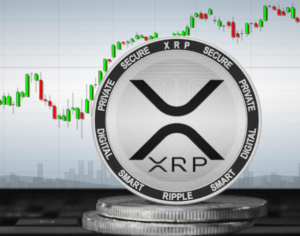$BTC $ETH #Bitcoin #Crypto #Blockchain #Investing #Finance #Regulation #ETFs #Cryptocurrency #DigitalAssets #FinanceNews
Is Bitcoin Really Not Crypto? Discover What Sets It Apart!
If news of Bitcoin’s unique standing within the cryptocurrency landscape has reached you, it’s essential to delve into what makes this digital asset distinct. Bitcoin is often perceived as the pioneer of cryptocurrency, yet its design, governance, and regulatory framework set it apart from the broader crypto market. Understanding these differences is crucial for investors looking to navigate the ever-evolving landscape of digital assets.
Bitcoin’s Unique Design and Governance
At its core, Bitcoin is built on a decentralized framework that emphasizes limited supply and security. Unlike many cryptocurrencies, Bitcoin has a capped supply of 21 million coins, which introduces a scarcity factor that has historically driven value. This design choice is foundational, as it contrasts sharply with many altcoins that can inflate their supply, impacting stability and trust.
Governance is another critical area where Bitcoin diverges from traditional cryptocurrencies. Bitcoin operates on a consensus mechanism that requires broad agreement among network participants to implement changes. This decentralized governance model fosters a sense of community and protects the integrity of the protocol. In contrast, many cryptocurrencies can be subject to centralized decision-making, leading to potential conflicts of interest.
Regulation and the ETF Landscape
Regulatory scrutiny has intensified in the crypto space, and Bitcoin has taken a leading role in discussions surrounding compliance and legitimacy. Its early adoption and established market presence have positioned it as a more acceptable asset for institutional investors. The growing interest in Bitcoin exchange-traded funds (ETFs) underscores this trend. While numerous altcoins struggle for regulatory approval, Bitcoin’s acceptance in mainstream finance reflects its unique status.
Investors should be aware that Bitcoin’s regulatory framework is evolving. As governments and financial institutions continue to adapt to the rise of digital assets, Bitcoin often finds itself at the forefront of legislative discussions. This dynamic environment means that Bitcoin could benefit from more favorable regulations, enhancing its appeal as a long-term investment.
The Broader Crypto Ecosystem
While Bitcoin is often classified as a cryptocurrency, its characteristics extend beyond the standard definition. The broader crypto ecosystem comprises thousands of digital assets, each with varying use cases and technologies. Many altcoins aim to solve specific problems or offer unique functionalities. However, Bitcoin remains the flagship asset, often viewed as a store of value akin to digital gold.
Investors interested in exploring the broader crypto landscape can find valuable insights and analyses by visiting this link. Understanding the diverse range of cryptocurrencies can provide a more comprehensive view of the market and help investors make informed decisions.
Conclusion: The Case for Bitcoin’s Distinction
In conclusion, Bitcoin’s design, governance, and regulatory landscape contribute to its unique position in the financial world. While it may be grouped with cryptocurrencies, it possesses attributes that set it apart from the rest. As the digital asset landscape continues to evolve, Bitcoin’s role as a leading investment option is likely to remain significant.
For those looking to engage with Bitcoin and its broader ecosystem, consider exploring platforms that offer comprehensive crypto services, such as this link. Keeping abreast of Bitcoin’s developments and the surrounding regulatory environment will be essential for anyone looking to thrive in the crypto space.







Comments are closed.